Urban Streets
Night photos of city streets often show a side of the city it is impossible to see during the daylight hours. My own community (La Crosse, Wisconsin) goes to much expense and trouble to maintain the look of an old world downtown complete with vintage street lights. Unfortunately, the reality is that with the traffic and litter during the day it is hard to see. Luckily the wonderfully contrasty pictures taken at night show it vividly.
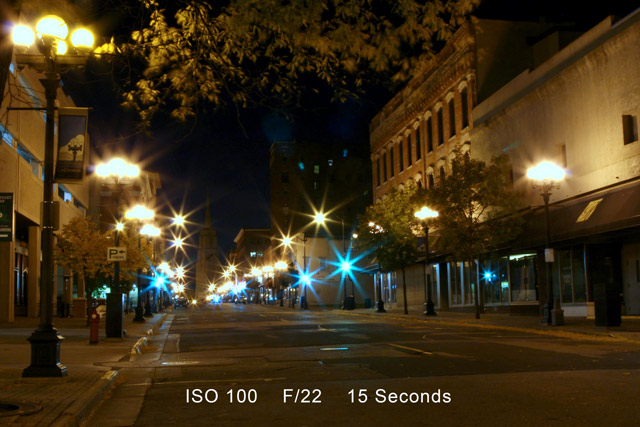
Aperture makes a big difference in the appearance of lights in night photos. This photo taken with a high aperture and long exposure shows a distinct "starring" of the lights
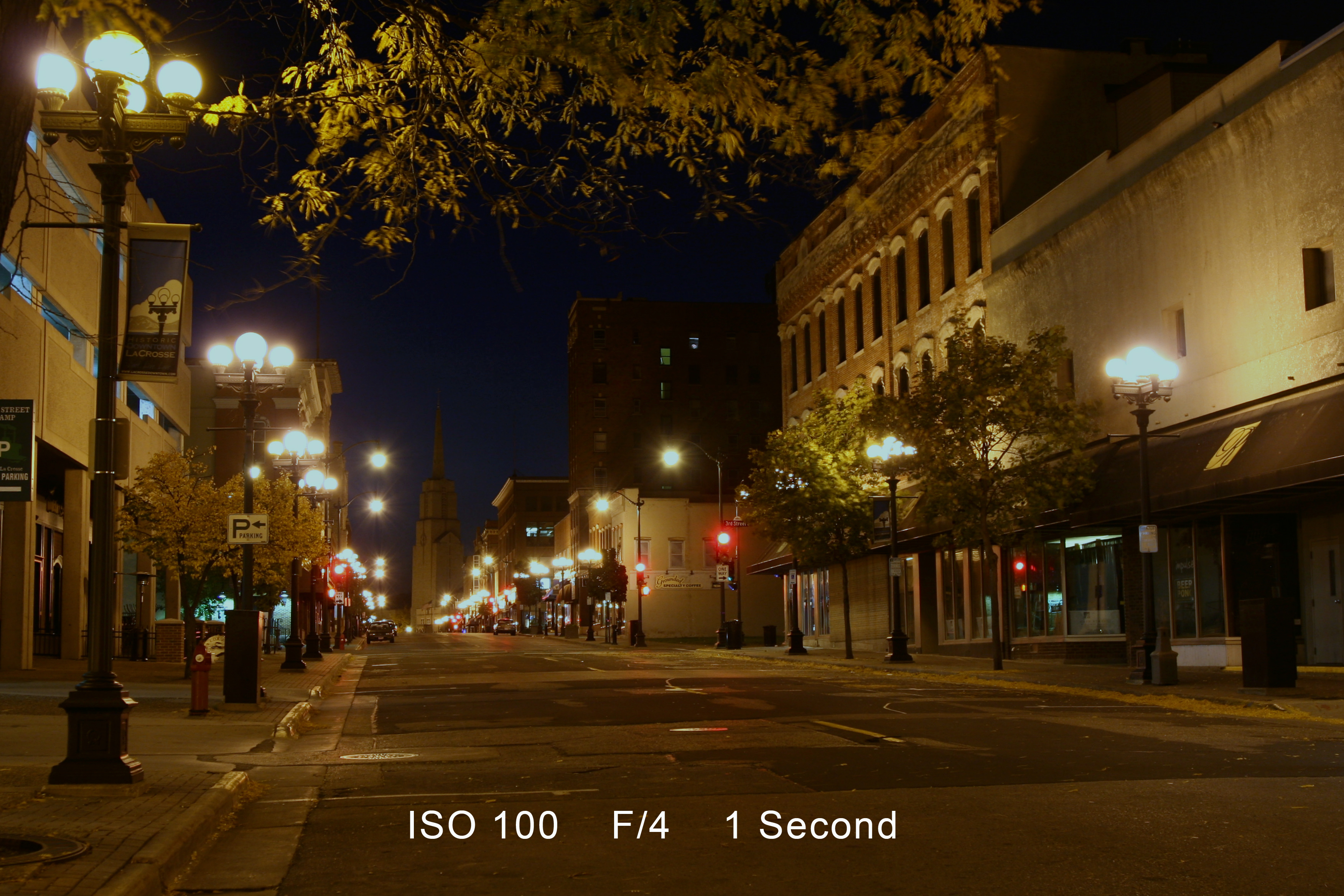
This photo was taken with a wide aperture shows softer lights with more of a glow. Looking at the pictures together it is easy to see that each photo has a different feel.
The Challenge
The lights and darks of urban streets at night make it almost impossible to be able to see everything in a photo clearly. The dynamic range limitations of the camera are especially evident in these type of shots. The other big issue is white balance. Most street lights give photos a horrendous yellow/orange glow that is difficult to tame.
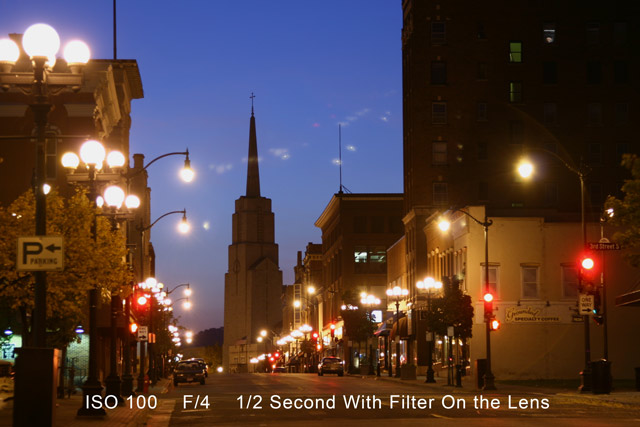
City lights can cause quite a bit of flaring. I have found that leaving a UV filter on your lens and shooting with a wide aperture will most always cause flaring as in this photo.
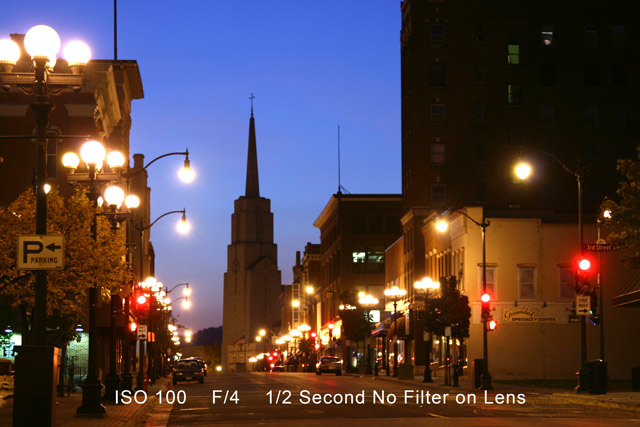
For this picture I removed the UV filter from my lens and as you can see there is very little if any flaring in the image.
The Good News
If you use the natural lines of street scenes, compose your shot to minimize excessive stark contrasts, and play with your photo editing program you can meet the challenge. Another option is to go black and white. I absolutely love black and white street scenes. In black and white contrast can often make the photo.
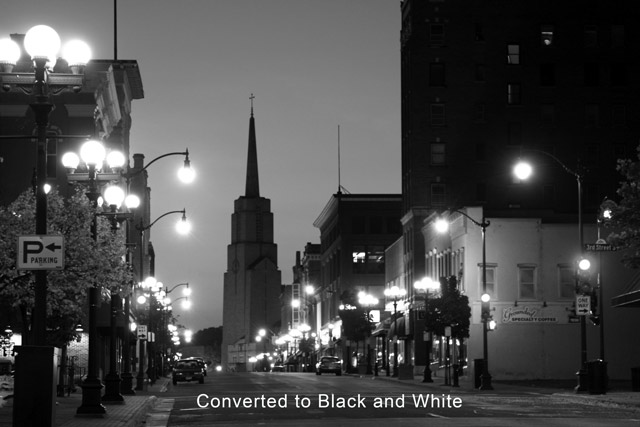
Always a classy look, you can convert you night street shots to black and white.
